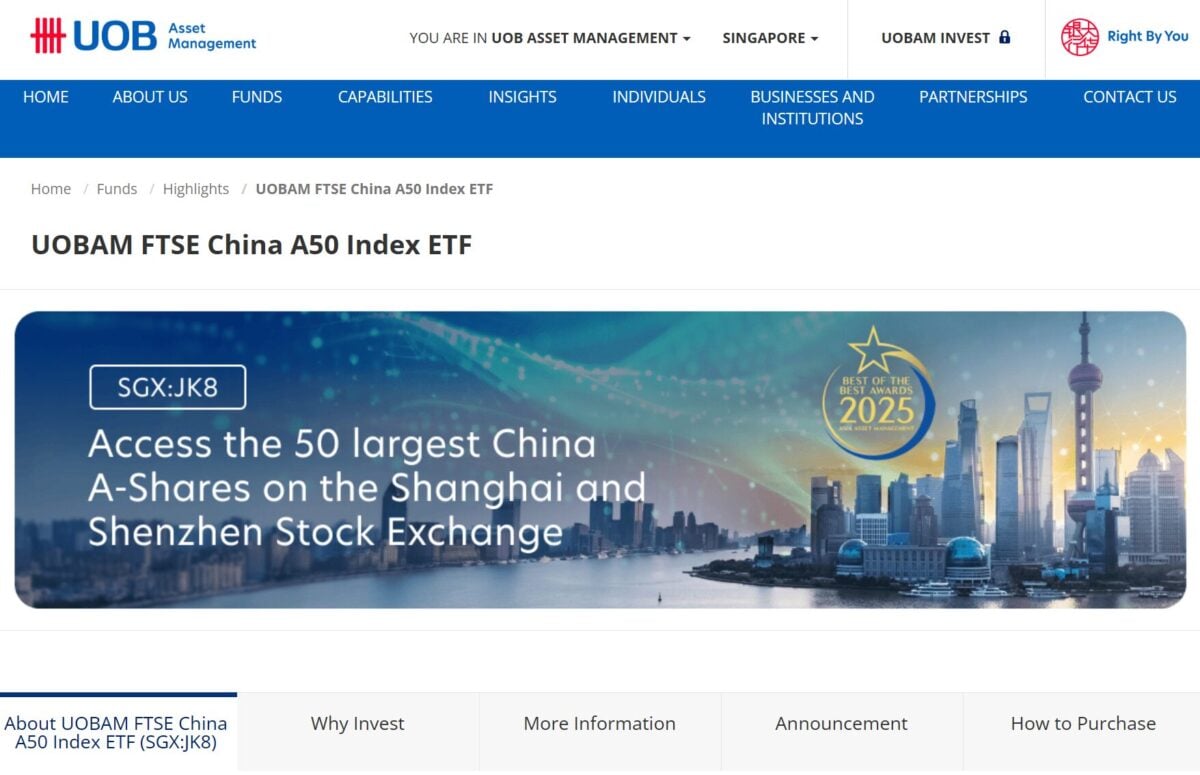Debunking common finance myths
Let’s be honest – when it comes to matters concerning money, most of us err on the cautious side. And that’s a good thing too, considering the many, many, finance myths floating around.
We’ve consolidated a list of common finance myths that you might’ve come across online or from your friends, and debunked them so you don’t get swept up by the bells and whistles of these sayings. Plus, stay till the end to discover a TikTok series that’ll educate even finance noobs on the ins and outs of investing.
1. “What I earn from investments solely depends on my capital”
Finance bro saying: What I earn from investments solely depends on my capital.
Myth debunked: Your capital and risk aversion both play a part in your earnings.
While it’s true that the primary amount you put into your investments is what helps to generate your subsequent returns, it’s not the only deciding factor that’ll determine how much you earn. Professionals in the business have shared that it also depends on the risk you’re willing to take, and in turn, the type of investment you choose to go for.
For example, a lower capital investment can still generate a large sum of interest if you choose a high-risk-high-return profile. That said, this also means that your chances of losing your capital are higher too. Check out this TikTok if you’d like to learn more about risk tolerance.
2. “You should check your portfolio & monitor the stock market daily”
Finance bro saying: You should check your portfolio and monitor the stock market daily.
Myth debunked: Checking your stocks daily can cause investors to make rash decisions. Instead, check it once every 2-3 months.
You’ll probably see your finance bros on their phone 24/7 – but no, they aren’t scrolling through Instagram. Instead, investors are known to religiously check the stock market daily. However, according to a research paper by the Journal of Banking & Finance, this might cause them to lose sight of long-term plans and make rash decisions.
So how often – or not – should you be monitoring the stock market? A founder of a wealth management agency suggests looking at your portfolio once every 2-3 months. But it’s understandable that some of us are more kanchiong, so you can take a quick browse every week or biweekly if you’re the impatient sort.
On the flip side, if you’re too busy to monitor, there are also investment platforms to tap onto. For instance, the DBS Vickers mTrading App helps track price movements, and allows users to conveniently buy and sell on the app. What is the DBS Vickers app, you ask? Watch the TikTok we linked to for the 411.
3. “You should be doing copious amounts of research”
Finance bro saying: You should be doing copious amounts of research.
Myth debunked: This only applies for self-managing portfolios, but you can also engage external parties to help manage your funds.
A common reason why many of us are hesitant to start investing is because of the tedious work that goes on behind the scenes – and this is true for those who plan on managing their own investment portfolios.
However, busybees or those new to investing can also engage fund managers or robo-advisors to help you do the work. Mutual funds are an example of this. You basically join a pool of investors to buy into a basket of funds, where the buying and selling of them are all managed and decided by a fund manager.
4. “Wait until the market is down before you buy”
Finance bro saying: Wait until the market is down before you buy.
Myth debunked: It’s difficult to determine when the market is at its lowest, so you should consider purchasing when the price is relatively low.
Of course, it makes sense to purchase stocks when the market is down and stocks are at a lower price. But it’s also important to remember that time in the market is just as important as the timing of the market – poetic, we know. This is because it’s near impossible to predict when the market is actually at its lowest.
So if you’re 100% sure about investing, consider taking the first step and purchasing the funds at a good price – this means that the cost should be relatively low, but not necessarily a record low. This way, you won’t be procrastinating and wasting the opportunity to earn compound interest. You can also school yourself on the differences between growth and value investing.
5. “There’s no point in buying index funds”
Finance bro saying: There’s no point in buying index funds.
Myth debunked: Index funds are actually great ways to diversify your portfolio.
For the uninitiated, index funds are basically a bunch of stocks and bonds that match a financial market index, like the famous S&P500 – so you’re essentially buying into the top 500 companies in the U.S. Most investors tend to skip over these funds as you have less flexibility in choosing what companies you invest in, making it more exciting than buying stocks, in a way.
But as investing icon Warren Buffett says, “By periodically investing in an index fund, the know-nothing investors can actually outperform most investment professionals”. For those who aren’t starting out with a huge capital, index funds are a great way to diversify your portfolio and reduce the risks of capital loss.
6. “Always go by the buy-and-hold strategy”
If your stocks were to take a physical form.
Finance bro saying: Always go by the buy-and-hold strategy.
Myth debunked: You can adopt this strategy, but don’t solely follow it.
As the name suggests, this strategy refers to investors who die-die refuse to sell their stocks for an extended period of time, regardless of what happens to the market. You may know a finance bro or two who can never seem to part with their stocks. If you operate solely by this mindset, you’ll end up limiting your options due to the inflexibility of this strategy.
For example, let’s say you’ve bought company A’s stocks but recent news has revealed that they are accused of sales fraud and all their directors are resigning. Sticking to this strategy means ignoring this information and insisting on holding onto the stocks with the hope that their value will go up in time.
It doesn’t necessarily mean that buy-and-hold is all bad though; it helps prevent new investors from getting swayed by short-term stock market movements and making impulsive decisions. It also encourages investors to find high-quality companies for long-term plans – a mindset that Warren Buffet adopts. J just remember that this isn’t the only way to invest.
7. “It’s too expensive to buy stocks from overseas markets”
Finance bro saying: It’s too expensive to buy stocks from overseas markets.
Myth debunked: Not anymore.
For those wondering, overseas stock markets tend to have more listed companies than Singapore, so there are more options to choose from and diversify your portfolio. In the past, investing in a foreign stock market was only possible through local brokerage accounts, and these tend to charge steep service fees which rack up quite a bill.
Thankfully, with the launch of more online brokerage platforms, overseas markets are now way more accessible, and these platforms have affordable commission fees too. No longer do we have to pay an arm and a leg just to access the stock markets from other countries, and you get more variety in your portfolio rather than just sticking to what’s available in home base.
8. “You should only invest when you’re rich”
Finance bro saying: You should only invest when you’re rich.
Myth debunked: Investing is for everyone.
You may have heard your friendly neighbourhood finance bro dole out common finance myths like only the rich have the power to invest – but we beg to differ. Investing is for everyone, besties. In fact, the best time to invest was yesterday.
After setting aside some emergency funds and a healthy amount of savings, consider using your excess money for investments. Regardless of how much you start with, you can then begin accumulating compound interest and over time, you’ll earn more returns than if you had delayed your investments. Bottom line, don’t leave all your money in the bank to collect virtual dust.
Debunk common finance myths with DBS TableTok
Investing can seem like scary business, especially with tonnes of differing opinions and sayings floating around – with varying levels of credibility. Whether you’re a veteran investor or just starting out in the scene, be sure to double-check before buying into these finance myths.
For those who need more guidance on the ways of investing, you’re in luck. DBS has launched TableTok, a series of bite-sized videos shedding pearls of wisdom on various topics including market trends and investment insights – basically all things finance. If you’re expecting a typical lecture-style video, you thought wrong.
The concept is something most of us probably haven’t thought of, but never knew how much we needed. Basically, a set of objects sitting on a DBS banker’s desk come to life to discuss the things they’ve seen and heard all day.
The result is a first-hand POV of the banker’s latest financial knowhow, complete with guidance, insights, and how it all fits into life in general. Intrigued? Us too.
As our mums have repeatedly said, “It’s always better to be safe than sorry”. This philosophy is applicable to many aspects of life, investing included. Take advantage of these credible and digestible doses of knowledge and put them to good use – and maybe you’ll become the next Warren Buffet. Or, at least, pick up some best practices to navigate the world of investments.
Find out more about DBS TableTok
This post was brought to you by DBS.
The post 8 Most Common Finance Bro Sayings Debunked So You Don’t Anyhow Invest appeared first on TheSmartLocal – Singapore’s Leading Travel and Lifestyle Portal.











